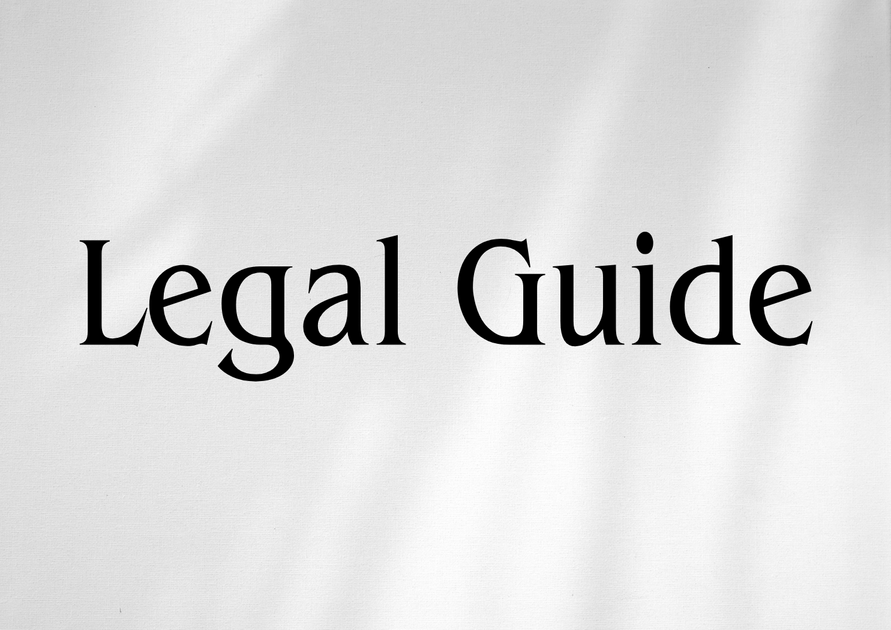Introduction: The Global Imperative for Arbitration and Cross-Border Dispute Resolution
The United Arab Emirates (UAE) has emerged as a strategic global business hub, forging robust commercial ties that span continents. Rapid international investment, cross-border partnerships, and multi-jurisdictional transactions have transformed the UAE’s legal landscape, amplifying the need for sophisticated dispute resolution mechanisms. In this dynamic environment, international arbitration and cross-border dispute resolution are no longer optional. These processes are essential instruments for businesses seeking predictability, neutrality, and enforceability in resolving complex issues beyond national borders. This article explores recent legal updates and strategic innovations in UAE arbitration law—including pivotal amendments since Federal Law No. 6 of 2018 (the UAE Arbitration Law)—offering deep legal analysis, best practices, and actionable insights for companies, executives, and legal teams operating in or through the UAE.
Table of Contents
- Overview of UAE Arbitration Law and Recent Federal Updates
- Leading Arbitral Institutions in the UAE
- Step-by-Step Overview of International Arbitration in the UAE
- Comparing Legislative Updates: Old Law vs. New Amendments
- Drafting Arbitration Clauses—Best Practices
- Recognition and Enforcement of Foreign Arbitral Awards
- Case Studies and Hypotheticals
- Risks, Pitfalls, and Compliance Strategies
- Conclusion and Forward-Looking Guidance
Overview of UAE Arbitration Law and Recent Federal Updates
The Legal Framework for Arbitration in the UAE
The cornerstone of arbitration in the UAE is Federal Law No. 6 of 2018, colloquially known as the UAE Arbitration Law. Enacted in line with international best practices and UNCITRAL Model Law principles, this legislation brought clarity and legal certainty, fostering a pro-arbitration landscape. The UAE Arbitration Law governs most arbitral proceedings conducted within the UAE, unless parties expressly agree to another procedural law—commonplace in international contracts involving DIFC or ADGM jurisdiction.
Recent years have seen further legal evolution:
- Federal Decree Law No. 15 of 2023 introduced new mechanisms for interim measures and reinforced the binding force of arbitral awards.
- Cabinet Resolution No. 57 of 2018 (regulating Civil Procedure Law reforms) streamlined recognition and enforcement of foreign awards, specifically addressing Court execution procedures in the context of the New York Convention (1958).
These reforms collectively establish the UAE as a forum where arbitration is credible and commercially attractive.
Relevance to UAE Businesses in 2025
Legal, regulatory, and business risks continue to evolve. Arbitration remains the preferred mechanism for cross-border resolution because of:
- Expedited proceedings and confidentiality, avoiding the unpredictability of foreign courts.
- The enforceability of arbitral awards—critical for international asset recovery and commercial certainty.
- Adaptability in sector-specific disputes and protection of sensitive commercial data.
Federal and ministerial updates continue to shape these considerations, reinforcing the UAE’s leadership as an international dispute resolution hub.
Leading Arbitral Institutions in the UAE
The UAE is home to several world-class arbitral institutions, each offering unique advantages and sectoral expertise. Legal consultants should always guide clients in institutional selection based on contract parameters, dispute nature, and international context.
| Institution | Location | Distinguishing Features |
|---|---|---|
| Dubai International Arbitration Centre (DIAC) | Dubai | Comprehensive rules, revised in 2022; international panel; English/Arabic proceedings. |
| Abu Dhabi Global Market Arbitration Centre (ADGMAC) | Abu Dhabi | English common-law basis; integrated with global standards; strong digital hearing support. |
| Dubai International Financial Centre-London Court of International Arbitration (DIFC-LCIA) | Dubai | Hybrid rules; seamless integration between DIFC and London courts; cross-jurisdictional norms. |
| Sharjah International Commercial Arbitration Centre (Tahkeem) | Sharjah | Efficient timelines; tailored for commercial disputes; multilingual proceedings. |
Step-by-Step Overview of International Arbitration in the UAE
Understanding the procedural life-cycle is vital for effective dispute management and strategic planning. While each institution may have nuances, a typical UAE-based international arbitration comprises:
- Notice of Arbitration: Formal initiation as per contract’s dispute resolution clause.
- Constitution of Tribunal: Appointment of arbitrator(s); party involvement ensured.
- Preliminary Meeting: Procedural orders, timelines, and electronic hearing protocols.
- Written Submissions and Evidence: Statement of claim, defence, witness statements, and expert testimonies.
- The Hearing: Oral presentations. Flexibility for hybrid (physical-digital) proceedings.
- Post-Hearing Briefs: Summations, cost submissions.
- Arbitral Award: Issuance of final, binding determination usually within strict timeframes.
- Recognition & Enforcement: If required, local Court execution, including in non-UAE jurisdictions under international conventions.
Suggested Visual: Arbitration Process Flow Diagram
A process flowchart depicting each key stage assists boards and GCs in visualising procedural milestones.
Comparing Legislative Updates: Old Law vs. New Amendments
| Key Feature | Pre-2018 Law | Post-2018 UAE Arbitration Law and 2023 Amendments |
|---|---|---|
| Interim Measures | Limited, Court intervention required, delays frequent | Tribunals empowered; interim urgency orders available (Decree Law No. 15/2023) |
| Recognition of Awards | Execution often protracted; inconsistent approach | Clearer Court powers; streamlined under Cabinet Resolution No. 57/2018 |
| Arbitrator Removal | Courts had broad powers to interfere | Now narrowed, respecting party autonomy |
| Virtual Hearings | Not envisioned by law; ad hoc only | Expressly recognized, supporting digital transformation post-2020 |
| Language | Defaults often in Arabic | Parties may now select hearing language contractually (Art. 29, Law No. 6/2018) |
Practical Impact: These legislative improvements minimize delays, preserve confidentiality, and enhance investor confidence—critical in international commerce.
Drafting Arbitration Clauses—Best Practices
Clarity and precision at the contract stage are paramount. Poor drafting breeds risk, delays, and challenges to award enforcement. Our consultancy recommends the following for UAE and multinational agreements:
- Institution Selection: State the arbitral institution (e.g., DIAC, DIFC-LCIA), applicable rules, and seat.
- Scope Definition: Clearly articulate the scope—e.g., “all disputes arising out of or in connection with this contract.”
- Number and Appointment of Arbitrators: Default to one or three arbitrators for efficiency; specify method of appointment.
- Language: Explicitly provide for the language of the proceedings.
- Governing Law: Clearly state the substantive law applicable to the contract and, if desired, arbitration proceedings.
- Interim Relief: In high-risk transactions, allow tribunal or local courts interim relief authority.
Compliance Checklist Table
| Checklist Item | Practical Guidance |
|---|---|
| Institution Stated | Always specify the arbitral body and adopt their model clause as template |
| Governing Law | Avoid ambiguity—define both contract and arbitration law |
| Number of Arbitrators | Odd number optimal; three for high-value or complex disputes |
| Language | Particularly important in multi-lingual deals |
| Enforcement Clause | Reference New York Convention where possible |
Recognition and Enforcement of Foreign Arbitral Awards
The New York Convention and UAE Practice
Since signing the New York Convention in 2006, the UAE has shown strong commitment to international award enforcement—subject to compliance with formal requirements.
- Article 52, UAE Arbitration Law (Federal Law No. 6/2018) permits parties to apply directly to the UAE Courts for execution without de novo review of the dispute’s merits.
- Cabinet Resolution No. 57/2018 synchronizes enforcement with broader civil procedure reforms, setting strict deadlines and procedures.
Foreign investors and local entities alike can have high confidence in cross-border recoverability, provided arbitration clauses and awards adhere to legal standards.
Enforcement Procedure Overview (Suggested Visual)
- Award submission to the execution judge within three months of issuance.
- Court reviews only procedural validity (not merits) and issues enforcement order, subject to narrow grounds for refusal.
- If challenged, expedited process applies, minimizing time-to-recovery for successful parties.
This emphasis on efficiency and finality contrasts with pre-2018 practices and enhances the UAE’s attractiveness for contract parties.
Practical Considerations
- Ensure notarized, legalized translation into Arabic (for onshore enforcement).
- Retain certified originals and proof of due notice to all parties throughout proceedings.
- Factor local holidays and procedural timelines into asset freezing strategies.
Case Studies and Hypotheticals
Case Study: Construction Dispute with Multinational Elements
Scenario: A UAE developer engaged a European contractor under a FIDIC agreement with a DIAC arbitration clause. As project delays escalated, the developer sought liquidated damages. The contractor counterclaimed for wrongful delay certifications, invoking the arbitration process.
- DIAC constituted a tribunal; parties submitted extensive expert reports. Multiparty video hearings were scheduled to accommodate cross-jurisdictional witnesses, leveraging the amended legal provisions recognizing virtual participation.
- Upon award in favour of the developer, the contractor sought to resist enforcement in UAE courts, claiming public policy grounds.
- The execution judge, applying the UAE Arbitration Law, rejected non-meritorious public policy objections and issued an enforcement order within two months, confirming the new law’s procedural efficiency.
Hypothetical: Joint Venture in the ADGM
Scenario: A UAE-based startup and a US technology partner form a joint venture with an ADGM-seated arbitration clause. A dispute arises on intellectual property use—and both parties file for urgent interim relief. Under Federal Decree Law No. 15/2023, the tribunal grants interim orders. The execution of these interim measures in ADGM is seamless, demonstrating the practical impact of legal modernization and robust institutional backing.
Risks, Pitfalls, and Compliance Strategies
Risks of Non-Compliance
- Invalid Arbitration Clause: Poor drafting or ambiguity can render an entire arbitration agreement unenforceable.
- Procedural Defects: Failing to adhere to prescribed notice, time limits, or institutional rules can delay or jeopardize proceedings.
- Public Policy Conflicts: Awards may be refused enforcement if contrary to UAE “public order or morality.”
- Evidence and Document Management: Mishandling originals or translations creates vulnerability in recognition phases.
Compliance Strategies
- Engage specialized UAE arbitration counsel for clause drafting and strategy.
- Familiarize executives and contract managers with procedural requirements of both the selected institution and UAE law.
- Maintain robust, secure document management from contract inception through to award enforcement.
- Invest in regular contract template updates, ensuring compliance with the latest federal and institutional regulations (e.g., UAE Law 2025 updates).
Suggested Visual: Compliance Checklist Table
| Action | Why It Matters |
|---|---|
| Periodic Clause Audits | Identify outdated or invalid dispute resolution mechanisms |
| Staff Arbitration Training | Reduce risks in procedural execution during real-time disputes |
| Legal Update Monitoring | Ensure reactive compliance with cabinet resolutions and ministerial guidance |
| External Counsel Review | Secure objective expertise and jurisdictional alignment |
Conclusion and Forward-Looking Guidance
As global commerce accelerates, the UAE’s robust legal architecture for international arbitration remains a strategic differentiator. Recent UAE law 2025 updates, including Federal Decree Law No. 15/2023 and continuous refinements to the execution procedures under Cabinet Resolution No. 57/2018, fortify the country’s position as a preferred seat for cross-border resolution. These reforms underscore a commitment to efficiency, neutrality, and the enforceability of awards—qualities indispensable for modern business confidence.
Key Takeaways:
- International arbitration should be embedded at contract inception, drafted with careful alignment with federation and institutional rules.
- Legal teams must stay abreast of evolving cabinet and ministerial guidelines—including the implications for sector-specific disputes, interim relief, and public policy exceptions.
- Effective compliance is not static: periodic review and external consultation are vital for sustained business protection and opportunity maximization.
Looking forward, a proactive approach to legal compliance and dispute strategy will continue to set resilient, globally minded organizations apart within the UAE and beyond. Consult with expert UAE legal advisors to future-proof your commercial contracts and protect your cross-border interests.



